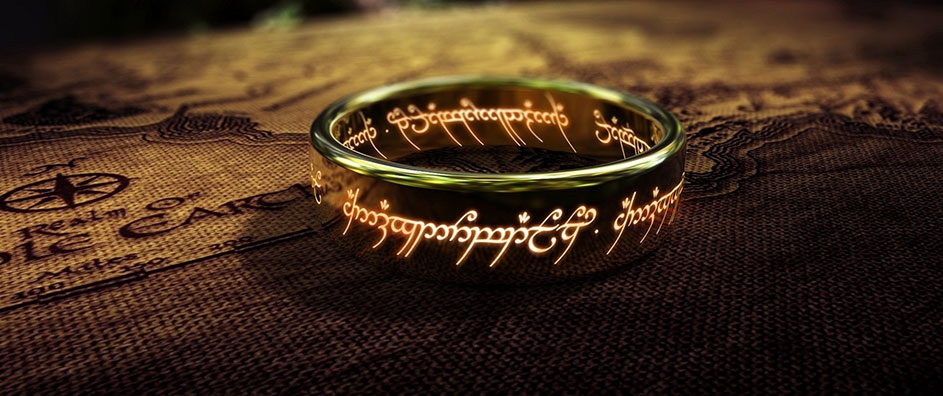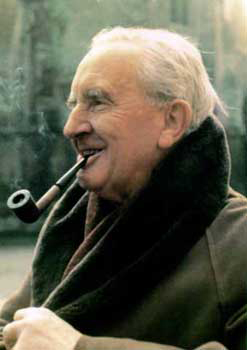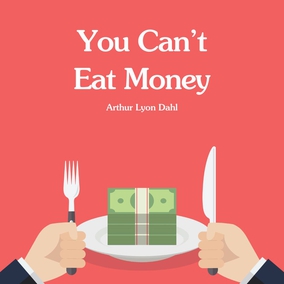The views expressed in our content reflect individual perspectives and do not represent the authoritative views of the Baha'i Faith.
As I mentioned earlier, in the same way C.S. Lewis consumed me as a boy, my neighbor friend was obsessed with Tolkien–and we were so much a part of each other’s lives that I hardly found it necessary to read The Lord of the Rings, as I got a heaping helping of it simply through osmosis.
My understanding of the story grew immensely, of course, on watching the astonishing trilogy of Peter Jackson’s Academy Award-winning films. That effort drew me into Middle-earth, and I decided I was past-due for an actual reading of Tolkien’s classic text.
The Lord of the Rings is named for the bad guy, the Dark Lord Sauron, but of course the real star is the hobbit Frodo Baggins, son of Bilbo Baggins of The Hobbit, Tolkien’s original book—which came, interestingly enough, from the bedtime stories J. R. R. invented for his own son. We follow Frodo from his cozy home in the Shire to the epicenter of danger in Middle-earth to destroy an instrument of evil, the One Ring.
As we learn through numerous episodes, the One Ring is power, not spiritual power, but worldly power–the power to control people, the power to crush people. The story shows us that the Ring corrupts everyone. Of the elves, dwarves, hobbits, wizards, and men, Tolkien states expressly that the One Ring has the most effect on men, the weakest race when it comes to resisting its temptation.
Indeed, the central question of the story eventually becomes: Can humanity unmake this terrifying, destructive apparatus of worldly power that already exists?
One way to view this question involves the Baha’i tenet of surrendering national sovereignty to a world state: for the sake of the peace of the world, will enough sovereign nations be able to surrender enough sovereignty to make that envisioned peaceful, human rights-based commonwealth a reality. Each nation ultimately will face what Frodo faced as he stood inside of Mount Doom at the edge of the lava. Will we decide to keep the ring and lord it over others, or will we destroy it by uniting it with the power that forged it, by uniting with each other?
As I thought about the history Tolkien lived through while writing the trilogy, mid 1940s to early 1950s, I considered that the ring of power could also represent nuclear warfare. As is the case for any weapon of mass destruction that by definition kills indiscriminately, the nuclear bomb can corrupt all who use it, no matter how noble at the start. Its power cannot be used in a moral way. As icing on this metaphor, I even saw the Ring in that visible circle that emanates out from ground zero.
The profound spiritual lessons in The Lord of the Rings seem less overt than Lewis’ Chronicles. And while there is a clear Manifestation character in the Narnia series, I could not put my finger on any such character in the Jackson movies.
But when I began to read the series, I quickly came across a character, not included in the movie, who indeed displays traits we associate with the Manifestation.
The character, a whimsical old man named Tom Bombadil, embodies the spirit of the woods where he lives. Just as the four hobbits leave the Shire on their long journey toward Mordor, Merry is attacked by an evil willow in the forest, and Tom Bombadil, passing by, rescues him and takes the quartet into his home. For several days he regales the hobbits with a sort of crash course on the world outside the Shire. At length, one of the hobbits asks him:
“Who are you, Master?” he asked.
“Eh, what?” said Tom sitting up, and his eyes glinting in the gloom. “Don’t you know my name yet? That’s the only answer. Tell me, who are you, alone, yourself and nameless? But you are young and I am old. Eldest, that’s what I am. Mark my words, my friends: Tom was here before the river and the trees; Tom remembers the first raindrop and the first acorn. He made the paths before the Big People, and saw the little People arriving. He was here before the Kings and the graves and the Barrow-wights. When the Elves passed westward, Tom was here already, before the seas were bent. He knew dark under the stars when it was fearless—before the Dark Lord came from Outside.”
The Tom Bombadil character in The Lord of the Rings has that deep wisdom, timelessness and insight we associate with the great myths and the great Prophets.

















Comments
Sign in or create an account
Continue with Googleor